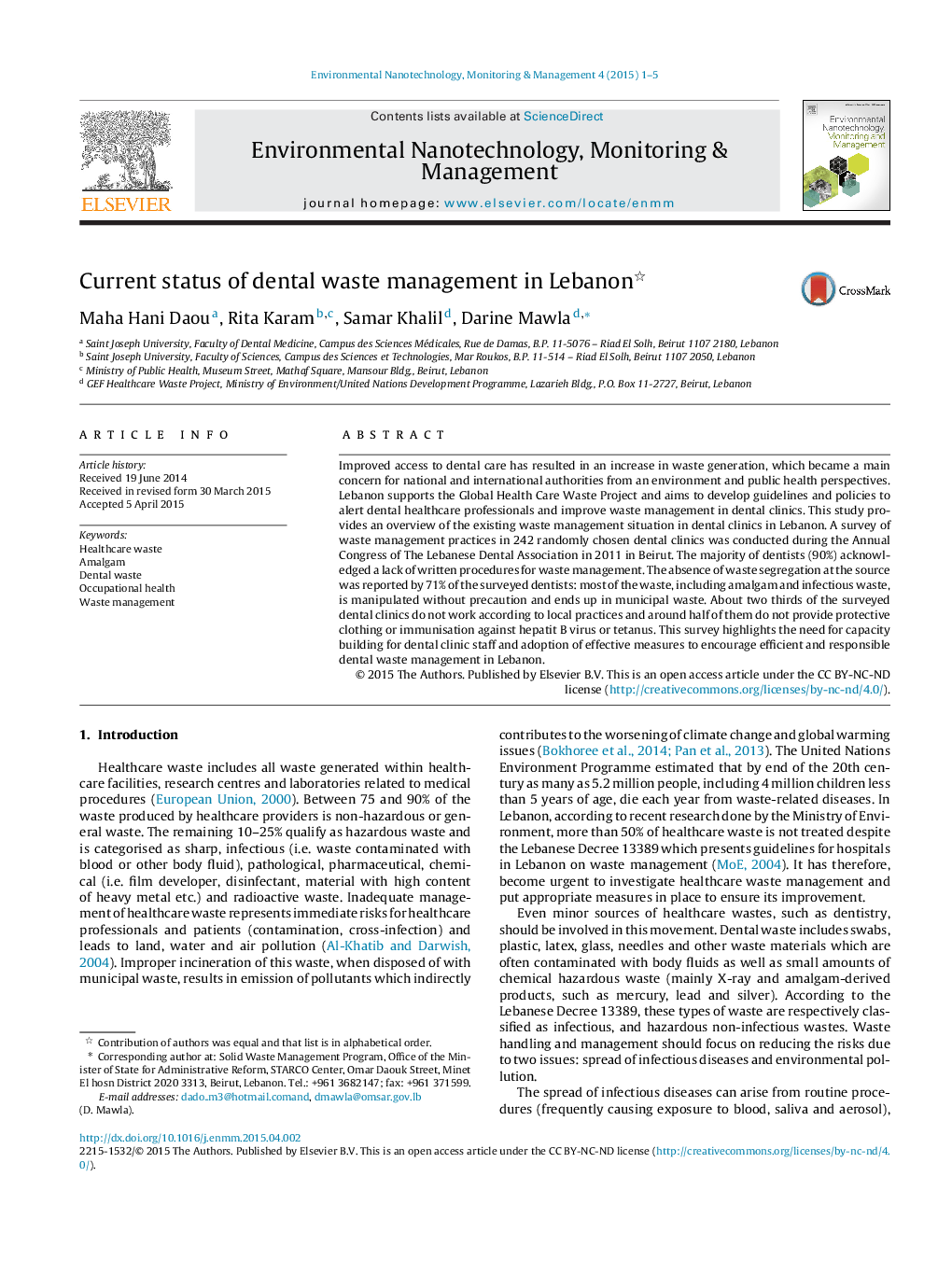| Article ID | Journal | Published Year | Pages | File Type |
|---|---|---|---|---|
| 4424199 | Environmental Nanotechnology, Monitoring & Management | 2015 | 5 Pages |
•There is a lack of written procedures for dental waste management in Lebanon.•Most of the waste, including amalgam, ends up in municipal waste.•There is a need for education of dental clinic staff.•Effective measures must be adopted to promote responsible dental waste management.
Improved access to dental care has resulted in an increase in waste generation, which became a main concern for national and international authorities from an environment and public health perspectives. Lebanon supports the Global Health Care Waste Project and aims to develop guidelines and policies to alert dental healthcare professionals and improve waste management in dental clinics. This study provides an overview of the existing waste management situation in dental clinics in Lebanon. A survey of waste management practices in 242 randomly chosen dental clinics was conducted during the Annual Congress of The Lebanese Dental Association in 2011 in Beirut. The majority of dentists (90%) acknowledged a lack of written procedures for waste management. The absence of waste segregation at the source was reported by 71% of the surveyed dentists: most of the waste, including amalgam and infectious waste, is manipulated without precaution and ends up in municipal waste. About two thirds of the surveyed dental clinics do not work according to local practices and around half of them do not provide protective clothing or immunisation against hepatit B virus or tetanus. This survey highlights the need for capacity building for dental clinic staff and adoption of effective measures to encourage efficient and responsible dental waste management in Lebanon.
